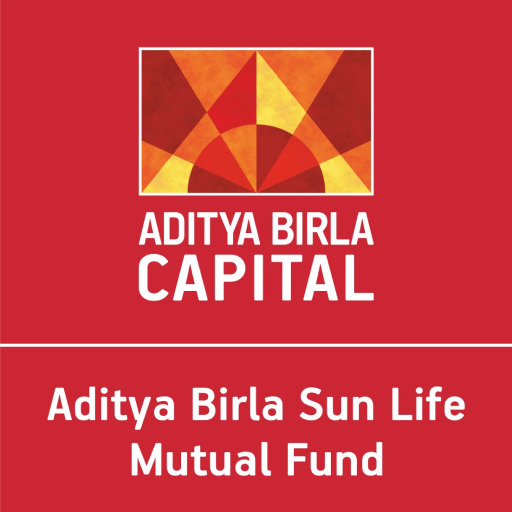
Debt Mutual Funds
Debt mutual fund schemes that invest in fixed income instruments, such as Bonds, and money market instruments etc. that offer capital appreciation. They are also referred to as Income Funds or Bond Funds.
FiltersReset
Return Duration
3 Years
Min Investment
<= ₹500
₹501 - ₹2000
> ₹2000
Rating 5
5 4
4 3
3 2
2 1
1
Rated By Value Research
Value Research
Sub Categories 10 year Gilt
10 year Gilt Banking and PSU
Banking and PSU Corporate Bond
Corporate Bond Credit Risk
Credit Risk Dynamic Bond
Dynamic Bond FMP
FMP Floater
Floater
AMC 360 ONE Mutual Fund
360 ONE Mutual Fund Abakkus Mutual Fund
Abakkus Mutual Fund Aditya Birla Sun Life Mutual Fund
Aditya Birla Sun Life Mutual Fund Axis Mutual Fund
Axis Mutual Fund Bajaj Finserv Mutual Fund
Bajaj Finserv Mutual Fund Bandhan Mutual Fund
Bandhan Mutual Fund Bank of India Mutual Fund
Bank of India Mutual Fund Baroda BNP Paribas Mutual Fund
Baroda BNP Paribas Mutual Fund Canara Robeco Mutual Fund
Canara Robeco Mutual Fund Capitalmind Mutual Fund
Capitalmind Mutual Fund

DSP Credit Risk Direct Plan-Growth
Credit Risk
Min. Investment
₹100
Category Returns
6.36%
15.57%
3Y Returns
15.57

Aditya Birla Sun Life Credit Risk Fund Direct-Growth
Credit Risk
Min. Investment
₹100
Category Returns
6.36%
15.57%
3Y Returns
12.91

HDFC Dynamic PE Ratio FoF Direct- Growth
Others
Min. Investment
₹100
Category Returns
7.57%
12.73%
3Y Returns
12.73

Aditya Birla Sun Life Medium Term Plan Direct-Growth
Medium Duration
Min. Investment
₹1000
Category Returns
6.67%
10.84%
3Y Returns
10.84

DSP Income Plus Arbitrage FoF Direct-Growth
Others
Min. Investment
₹100
Category Returns
7.57%
12.73%
3Y Returns
10.72

Invesco India Credit Risk Fund Direct-Growth
Credit Risk
Min. Investment
₹1000
Category Returns
6.36%
15.57%
3Y Returns
10.62

Nippon India Credit Risk Fund Direct-Growth
Credit Risk
Min. Investment
₹100
Category Returns
6.36%
15.57%
3Y Returns
9.13

ICICI Prudential Credit Risk Fund Direct Plan-Growth
Credit Risk
Min. Investment
₹100
Category Returns
6.36%
15.57%
3Y Returns
9.11

Kotak Medium Term Fund Direct-Growth
Medium Duration
Min. Investment
₹100
Category Returns
6.67%
10.84%
3Y Returns
9.02

Nippon India Strategic Debt Fund Direct-Growth
Medium Duration
Min. Investment
₹100
Category Returns
6.67%
10.84%
3Y Returns
8.87
1
2
3
4
5
6
1
What are Debt Funds and how do they work?
Debt Funds, also known as Income Funds, primarily invest in fixed-interest generating securities like bonds and money market instruments. In a way the fund lends money to issuers of the underlying bonds, and earns interest on them. The fund then passes this interest earned to you in the form of returns. It is quite similar to opening a fixed deposit with a bank. The only difference is that in the case of debt funds, the fund manager maintains a portfolio comprising a plethora of fixed income securities which mature on different dates and bear different interest rates. He/she selects only those debt securities which will help to achieve the investment objective of the fund. In a nutshell, debt funds aim to generate a regular stream of income and grow wealth.
Risk-Return Potential
Debt funds are considered safer than equity funds and hybrid funds. The fact that the underlying assets generate fixed interest makes these funds ideal for receiving a regular income. As compared to traditional investment avenues like bank FDs, debt funds have the potential to generate higher risk-adjusted returns. However, one point must be noted, - the fund NAV may change due to the movement of interest rates in the economy. A rise/fall in the interest rates causes the bond prices to go down/up thereby pulling the fund NAV down/up.
Within debt funds, GILT Funds may provide long term wealth accumulation at a relatively higher risk. Besides this, Dynamic Bond Funds are an all-season investment option to grow wealth by taking advantage of interest rate movements.
Within debt funds, GILT Funds may provide long term wealth accumulation at a relatively higher risk. Besides this, Dynamic Bond Funds are an all-season investment option to grow wealth by taking advantage of interest rate movements.
Who should invest?
Relatively stable in nature, debt funds may be an ideal companion for an equity-oriented portfolio for the purpose of stability. Conservative investors who are planning to stay invested for around 5 years may grow their wealth by investing in debt funds. Those who want highly liquid avenues to park their short term funds may go for liquid funds. If you are approaching retirement, then you may start a transition from risky equity funds to safer avenues like debt funds. Along with this, you can also explore the dividend option in debt funds to boost your income after retirement. Long term investors who fall in higher tax brackets may allocate a part of their portfolio towards debt funds. It will lower their tax liability as the long term capital gains upon redemption receive the benefit of indexation and are taxed at the rate of 20%.
How to pick the right debt fund?
Choosing a debt fund which gives you higher returns may be one of the ways but you need to consider other factors too. You should identify your goals, risk appetite and investment horizon as well before investing in a debt fund. Aggressive investors may go for Credit Risk Funds which invest in low-rated securities. These funds generate relatively higher returns while taking higher credit risk. Risk averse investors may create wealth by investing in corporate bond funds which invest in high quality securities. Besides, liquid funds are ideal short term investments for creating an emergency fund. If you have an investment horizon of up to 1 year, then you may pick from ultra short duration fund and low duration fund. For long term investors, medium duration funds and long duration funds may serve the wealth creation purpose.